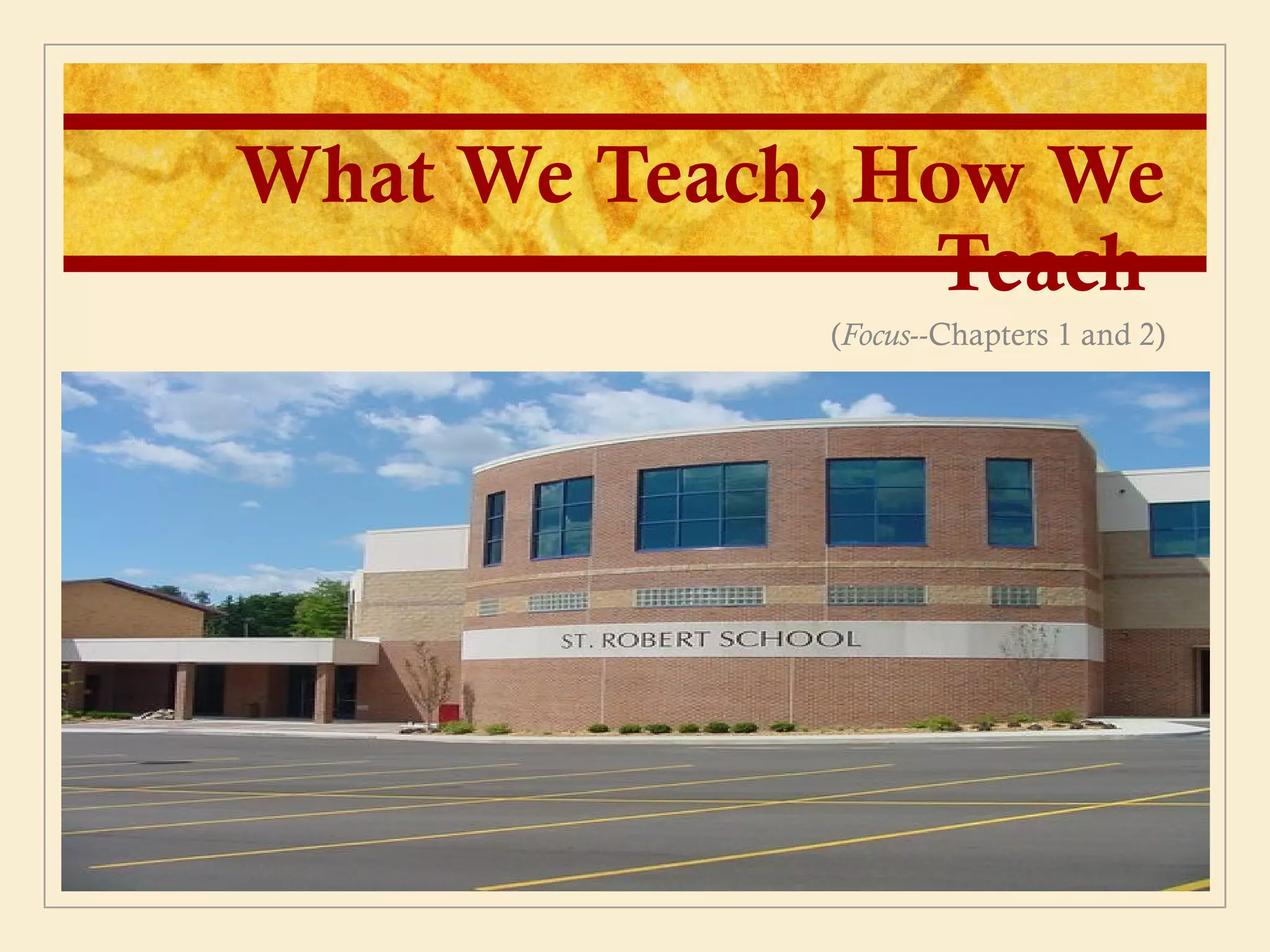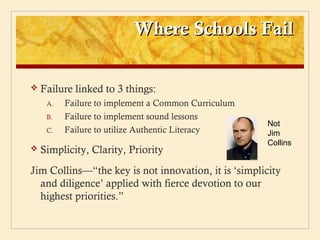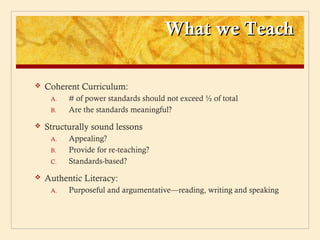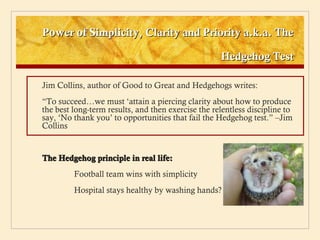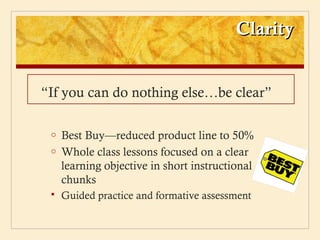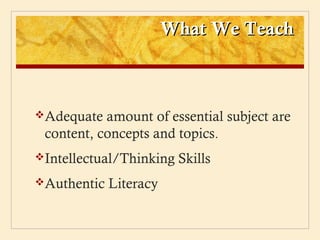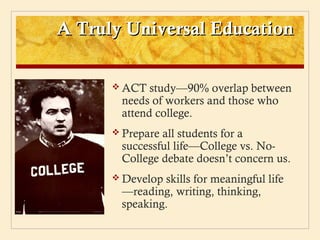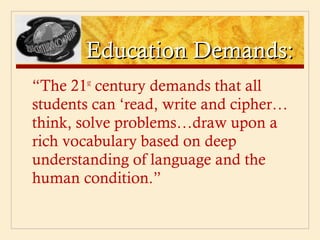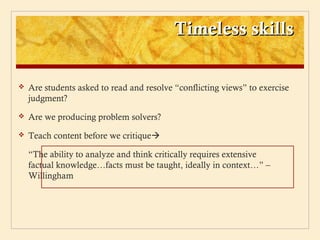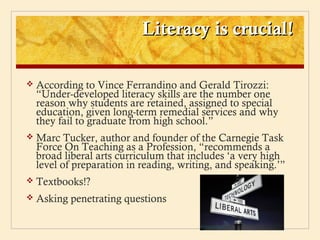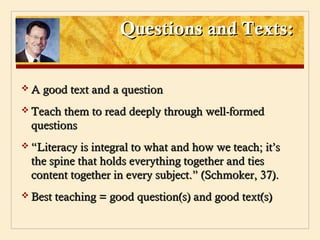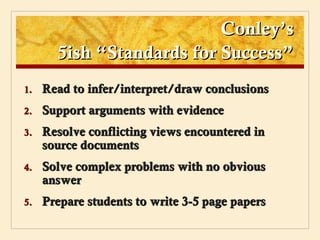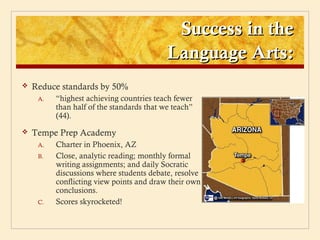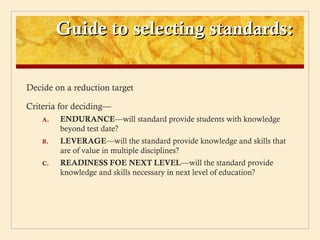This document discusses effective teaching practices based on chapters 1 and 2 of the source text. It makes 3 key points:
1. Schools often fail due to a lack of a common curriculum, ineffective lessons, and not utilizing authentic literacy. Simplicity, clarity and priority are important.
2. An effective curriculum has a coherent set of meaningful power standards, structurally sound lessons, and the development of authentic literacy skills like argumentative reading, writing and speaking.
3. Literacy is crucial for student success. Students must be able to read deeply, support arguments, resolve conflicting views, and write multi-page papers. Reducing standards and focusing instruction allows for the development of these skills.
